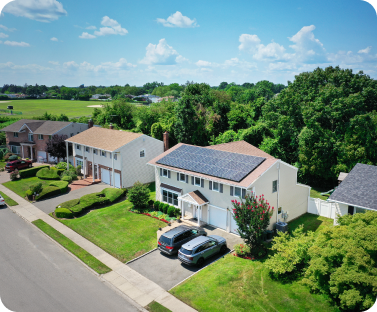When considering going solar, one of the biggest advantages is saving money. On average, our solar systems pay for themselves within 4-7 years when purchased with cash. Homeowners that finance or lease their system can expect to see immediate savings on their electric bills, and save upwards of $100,000 over the life of their system.
With all the talk about saving money you may wonder how exactly this is accomplished. We spoke with Zack Lerman, resident solar expert, to better understand what happens behind the scenes to result in a $0 electric bill.
Q: In simple terms, how does going solar save you money?
A: The short answer is that making the switch to solar energy either greatly reduces, or completely eliminates your electric bill. Over time, savings on your electric bill and solar incentives surpass the cost of the system. This means that you save more than you spend on the system, if you purchase it outright. Most people finance their systems through a loan and make a low monthly payment, usually over the course of 12-15 years. With loans, there are no upfront costs and your monthly payment is typically less than your average electric bill, which allows you to save money from day one.
Q: What are solar incentives, and what solar incentives are available?
A: To encourage homeowners to invest in solar, the federal government, New York State, and NYC offer financial incentives, rebates, and tax credits that make solar more affordable. Additional tax credits may be available to you on combined solar panel and storage systems. For most of our clients these incentives can cover up to 50% or more of the total system cost, which is a big deal!
A popular tax credit, known as the federal investment tax credit or ITC, allows you to deduct a portion of the cost of your solar system from the taxes. The ITC rate currently stands at 26%. One of the best incentives, however, is net metering.
Q: What is net metering, and how does net metering save you money?
A: When solar panels are installed on a home, the home still remains tied to the electric grid and has access to net metering. During high production months like spring and summer, solar panels generally operate at maximum capacity, producing more energy than you can consume in a given month.
When you produce excess energy, your system sends that electricity to the grid and every kilowatt-hour you send back will be recorded on your bill as an energy credit. These energy credits are used at times when your system is not producing the energy you need, such as during the winter.
Want to Learn More?
If you’re ready to start saving on your electric bill schedule a virtual consultation with us today!
Say goodbye to high-energy bills and hello to worry-free solar

Say goodbye to high-energy bills and hello to worry-free solar
About the Author

Tara represents EmPower Solar as the Chair of the Long Island Solar & Storage Alliance where she is the government liaison for policy issues related to solar and energy storage. In 2018, Tara was named one of the Top 50 Women in Business by the Long Island Business News. She was also inducted into the Social Justice Distinguished Scholar Academy for her work in environmental justice issues in collaboration with Farmingdale State College.